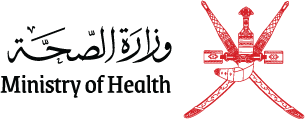Center for Disease Control and Prevention

The Center for Disease Control and Prevention is one of the main pillars of public health in the Sultanate of Oman. The Center is entrusted with strategic planning, developing training programs and manuals on public health related topics, conducting field researches and working in partnership with research institutions within and outside the Sultanate. The Center consists of five Departments; Infection Prevention & Control, Communicable Disease Surveillance, Central Public Health Laboratories, Environmental & Occupational Health and Surveillance Department. This Directorate acts as the national point of reference on the issues referred above and the Directorate is responsible for the development and training of health workers in all health institutions in the Sultanate.
Services
Services Provided
1. Conducting epidemiological studies on the spread of diseases in the Sultanate.
1. Conducting epidemiological studies on the spread of diseases in the Sultanate.
The objective of this study is to estimate the cause and extent of spread of infectious diseases at national level or at regional level. Epidemiologists help with study design, collection, and statistical analysis of data, and interpretation and dissemination of results in accordance with the laid frameworks and regulations.
Read More2.Monitoring, control and surveillance of communicable diseases and prevention programs.
2.Monitoring, control and surveillance of communicable diseases and prevention programs.
Infectious diseases whether caused by virus, bacteria or parasites, the country has a set of specific plans and programs that aim to monitor these diseases. With its applications and Sultanate manages to eliminate some of these diseases, to bring some of them under control in accordance with international indicators.
Read MoreProjects
Formulation of a national strategy for Infection Prevention & Control
The strategy aims to lay the foundation the practice for Infection Prevention at Health Institutions
Formulation of a national strategy for medical waste.
The strategy aims to create controls and conditions for the disposal of waste in the Health Institutions, whether public or toxic waste or plague spot waste
Formulation of the national strategy for responding to pandemics and outbreaks
The aim is outbreak preparedness and response plans for outbreaks, whether in Health Institutions or the community in cooperation with the competent authorities in the public and private sector
Surgical Antimicrobial Prophylaxis
The project aims to evaluate the use of antibiotics before surgery
National Epidemiological Surveillance plan
The project aims to create a national system of epidemiological surveillance and necessary plans to address the all epidemiological concepts.
Construction of the new Central public health laboratory.
The aim to build an Integrated Public Health Laboratory following the international standards and cover all core disciplines of Public Health
Development of Travel Medicine Service
The aims to create travel medicine service at Primary Health Care Level and referral hospitals and provide necessary vaccines, medicines and advise to travelers
Develop biological safety laboratory Level 3 (BSL3).
This laboratory provides highest safety level in testing bacteria and viruses infections
National Toxicology Center
The center aims to educate healthworkers in the Sultanate about toxins diseases.
About Us

Ongoing Projects
Formulation of a national strategy for Infection Prevention & Control
The strategy aims to lay the foundation the practice for Infection Prevention at Health Institutions
Formulation of a national strategy for medical waste.
The strategy aims to create controls and conditions for the disposal of waste in the Health Institutions, whether public or toxic waste or plague spot waste
Formulation of the national strategy for responding to pandemics and outbreaks
The aim is outbreak preparedness and response plans for outbreaks, whether in Health Institutions or the community in cooperation with the competent authorities in the public and private sector
Surgical Antimicrobial Prophylaxis
The project aims to evaluate the use of antibiotics before surgery
National Epidemiological Surveillance plan
The project aims to create a national system of epidemiological surveillance and necessary plans to address the all epidemiological concepts.
Future Projects
Construction of the new Central public health laboratory.
The aim to build an Integrated Public Health Laboratory following the international standards and cover all core disciplines of Public Health
Development of Travel Medicine Service
The aims to create travel medicine service at Primary Health Care Level and referral hospitals and provide necessary vaccines, medicines and advise to travelers
Develop biological safety laboratory Level 3 (BSL3).
This laboratory provides highest safety level in testing bacteria and viruses infections
National Toxicology Center
The center aims to educate healthworkers in the Sultanate about toxins diseases.
Services List
1. Conducting epidemiological studies on the spread of diseases in the Sultanate.
1. Conducting epidemiological studies on the spread of diseases in the Sultanate.
The objective of this study is to estimate the cause and extent of spread of infectious diseases at national level or at regional level. Epidemiologists help with study design, collection, and statistical analysis of data, and interpretation and dissemination of results in accordance with the laid frameworks and regulations.
Read More2.Monitoring, control and surveillance of communicable diseases and prevention programs.
2.Monitoring, control and surveillance of communicable diseases and prevention programs.
Infectious diseases whether caused by virus, bacteria or parasites, the country has a set of specific plans and programs that aim to monitor these diseases. With its applications and Sultanate manages to eliminate some of these diseases, to bring some of them under control in accordance with international indicators.
Read MoreContent Resources
Guide to Public Health Preparedness & Response in Humanitarian Crisis
This document is intended to be used by the policy makers, public health professionals, health administrators, health emergency response teams and other relevant ministries, agencies, departments and organizations involved in such emergency situation.
Laboratory Services Handbook
The purpose of this manual is to give a broad overview of the laboratory facilities available within the Central Public Health Laboratory. Detailed guidelines are given for suitable specimens for each test along with the specimen collection, storage and transportation conditions. We are sure that this manual will be a useful and a handy reference to all health institutions in Oman.
Communicable Diseases Manual
This manual is designed to provide general guidance on surveillance and public health response for the priority communicable diseases in Oman and is primarily aimed at the health care professionals at all levels of healthcare including the private sector.
National Immunization Coverage Survey
The immunization program is considered one of the most successful programs of the Ministry of Health at the national and international level with the synergetic effort made by all the health care professionals. This survey is conducted to achieve several goals including validation of the results of routine reports and provide additional information that how many people were immunized correctly at all levels (National and sub national), evaluation of the immunization program performance and find ways to improve the immunization activities.
National Preparedness and Response Plan for MERS-CoV
emphasis on the five pillars for preparedness and National ebola preparedness plan: includes all standard measures to deal with clinically suspected ebola case (reporting, isolation, clinical examination and treatment) in addition to sampling techniques and laboratory diagnosis with stress on infection prevention and control measures. All measures are presented in Algorithms
National TB Manual 2022
Since the first edition in 1988, the National TB Manual has been revised several times, until the fourth edition which was published in April 2007. After the launching of the National TB Elimination Strategy in 24th of March 2021, which articulates on prevention, diagnosis, treatment, community and scientific research promotion; the National TB manual was updated and the fifth edition was released in October 6th 2022. This version included updates in prevention, diagnosis, treatment, monitoring and evaluation in order to standardize and improve the quality of the services for TB in Oman in all health institutes at government and private.
National Strategic Plan for TB Elimination 2021 - 2025
This strategic framework, which was launched on 24 March 2021, offers a coherent approach for eliminating tuberculosis (TB) in Oman which is a low-incidence country. It is designed to guide those responsible for technical aspects of the national TB response in accelerating efforts towards elimination. The document will also be informative for public health surveillance officers, practitioners and nongovernmental and civil society partners working on national TB care and prevention.
National TB Program Monitoring & Evaluation Framework
A unified system for monitoring the tuberculosis program across all public and private healthcare institutions. It includes performance indicators to enhance service quality and achieve goals within the framework of the tuberculosis elimination strategy.
TB Patients' Referral System
It is an effective system for healthcare providers to track the referral of tuberculosis patients across primary, secondary, and tertiary care institutions. It also encompasses non‑Ministry of Health facilities, private institutions, and fitness test centers. The system includes referral criteria and patient transfer procedures, with the aim of facilitating communication among all public and private healthcare facilities involved in patient care.
MOH Code of Practice for Infection Prevention and Control
This Code of practice for the MoH health care facilities aims to insure that IP&C services are implemented and delivered following evidence-based standards and practices and are uniform throughout our institutes. Infection prevention is vital to ensure that people who use different services provided by MoH receives safe and effective care.
National Policy and Procedure of Hand Hygiene
All healthcare facilities are committed to implementing a comprehensive hand hygiene policy to prevent and reduce the risk of healthcare-associated infections. This policy aims to minimize the transmission of infections through the hands of healthcare workers in both Ministry of Health (MoH) and non-MoH healthcare settings.
National Guideline for Infection Prevention and Control Practices in Hemodialysis Unit
Patients undergoing hemodialysis (HD) are at higher risk of healthcare-associated infections (HCAIs) due to factors such as immunosuppression, exposure to invasive devices, lack of physical barriers in outpatient HD settings, and frequent contact with healthcare workers. This guideline outlines effective infection prevention and control (IPC) measures to reduce the risk of HCAIs in this population.
National Antimicrobial Guidelines
The national antimicrobial guidelines provide guidance for clinicians in the Ministry of Health and other healthcare settings for the empirical and targeted antimicrobial therapy of various infectious syndromes. Treatment guidelines for pediatric and adult patients are included. The users of these guidelines should seek experts in antimicrobials such as infectious disease physicians, medical microbiologists and clinical pharmacists in order to optimize antimicrobial use in various healthcare settings.
National Surgical Antimicrobial Prophylaxis Guideline
The Guidelines aim at establishing a specific rule on the use of Perioperative Antibiotics Prophylaxis regarding the administration of doses timing, quantity, and types and generalize it to all Governmental and Private Health Establishments.
The Omani Antibiotic Resistance Surveillance System (OMASS) 2022
Antibiotic resistance is one of the biggest public health challenges globally. The Omani Antibiotic Resistance Surveillance System (OMASS) comes as a part of the national efforts to combat this phenomenon in the Sultanate of Oman. The system aims to monitor patterns of antibiotic resistance among different pathogens, and collect and analyze data to support health and treatment policies.
The Omani Antibiotic Resistance Surveillance System (OMASS) 2023
Antibiotic resistance is one of the biggest public health challenges globally. The Omani Antibiotic Resistance Surveillance System (OMASS) comes as a part of the national efforts to combat this phenomenon in the Sultanate of Oman. The system aims to monitor patterns of antibiotic resistance among different pathogens, and collect and analyze data to support health and treatment policies.
The Omani Antibiotic Resistance Surveillance System (OMASS) 2024
Antibiotic resistance is one of the biggest public health challenges globally. The Omani Antibiotic Resistance Surveillance System (OMASS) comes as a part of the national efforts to combat this phenomenon in the Sultanate of Oman. The system aims to monitor patterns of antibiotic resistance among different pathogens, and collect and analyze data to support health and treatment policies.
Standard Operating Procedure (SOP) for Water Quality Management in Healthcare Facilities
This Standard Operating Procedure (SOP) provides a structured and comprehensive framework for maintaining and monitoring water quality in healthcare facilities under the Ministry of Health. It was developed by a multidisciplinary team led by the Centre for Disease Control and Prevention, and it is intended for all personnel involved in the Water Quality Program, to ensure compliance with national safety and infection prevention standards. The SOP encompasses key components of water safety planning, including sampling protocols, testing methodologies, and outbreak investigations—particularly concerning waterborne pathogens such as Legionella and Pseudomonas aeruginosa. It details standardized procedures for the collection, labelling, transportation, and analysis of water samples across diverse clinical settings, including dialysis units, dental clinics, and intensive care units. Special emphasis is placed on high-risk areas, infection prevention measures, staff training requirements, and quality assurance mechanisms. The SOP also defines acceptable physicochemical and microbiological parameters, outlines proper sample handling practices, and prescribes corrective actions in cases of non-compliance. As an essential operational guide, this SOP supports improved health outcomes by ensuring the consistent provision of safe and clean water in healthcare environments.
Laundry Services in Healthcare Facilities Guidelines
Global evidence shows that laundered healthcare textiles (HCTs) can still be contaminated before use. Microorganisms may accumulate due to improper laundering, patient contact, environmental exposure, or contaminated items, posing a particular risk to immunocompromised patients. These guidelines standardize the laundering process within healthcare facilities, reduce the role of contaminated HCTs in healthcare-associated infections, and outline laundering requirements for private medical laundry services contracted by healthcare facilities.
Public Health Bulletin (2017)
The quarterly ‘Public Health Bulletin’ is the official publication reporting the progress and the activities of the departments under the office of Directorate General for Disease Surveillance and Control (DGDSC) and it also includes the quarterly disease surveillance data . This bulletin is an in-house publication of the DGDSC providing pertinent information to all the health care staff in the Ministry of Health, other health organizations, private health establishments, other sectors, the GCC and the WHO-EMRO.
No Information Available At The Moment
Contact Numbers and Locations
Address
18 November Street, Muscat/ Postal code: 100

